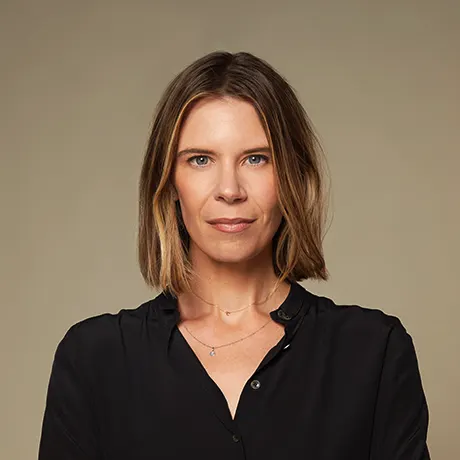From ADHD perfectionism to empathy and grace (Livingston’s story)
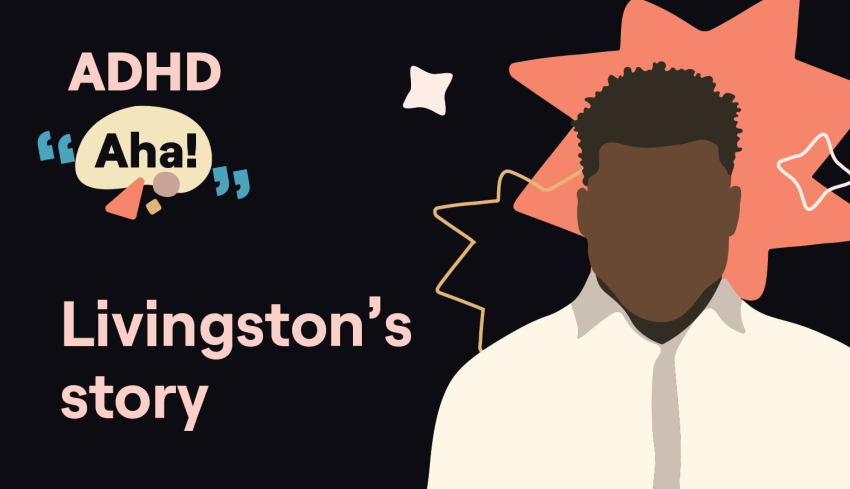
Stay in the know
All our latest podcasts delivered right to your inbox.
It’s the hair twirling that always gives it away. After silently coping for years, Livingston Steele can spot the signs of ADHD, and the anxiety it can cause. He’d been working here at Understood.org for about a year when he was officially diagnosed.
Livingston talks about his perfectionism and what led him to get evaluated for ADHD. He also shares how ADHD helped him build empathy for his brothers (who also have ADHD), and for himself.
Related resources
Episode transcript
Livingston: One of the reasons why I did get diagnosed is I learned that both my brothers do have ADHD. So, once I got diagnosed, we got even closer together because I understand them a lot more. And as an older brother, I had a lot more grace towards them because I wasn't being such a perfectionist or wanting everything done and doing it my way. I also was learning how they work as well and accommodating them.
Laura: From the Understood Podcast Network. This is "ADHD Aha!," a podcast where people share the moment when it finally clicked that they or someone they know has ADHD. My name is Laura Key. I'm the editorial director here at Understood. And as someone who's had my own ADHD "aha" moment, I'll be your host. I am here today with Livingston Steele, my colleague, my buddy, social media manager here at Understood.org. Hi Livingston, how are you?
Livingston: Hi Laura. Thank you for having me.
Laura: This is so nice to now be spending time just talking with you. Folks who are listening or watching don't know, but we've had a very busy day and Understood today. And so, now we get to just sit back and have a nice conversation. So this will be great.
Livingston: Definitely, definitely.
Laura: I just want to ask, because we're in this moment together, is it hard for you to focus at the end of the day?
Livingston: It's hard for me to focus any part of the day.
Laura: I'm sorry I'm laughing! What a great answer.
Livingston: Yeah, me particularly, I get a lot of my energy later in the day. So, sometimes I'll get a burst of energy to focus or to work at like four. Whereas, you know, that's probably the wrap of the day. So, sometimes I would have to like, stay until like six or so, not because I'm prone to overdo work, but that is when like, sometimes my biggest focus-time is between like two and four.
Laura: Wow! So, this is perfect timing for you. I'm so mesmerized by that because, listeners watchers, we are recording this at 3:25 p.m. at this moment, which is why I'm feeling drained because that's usually my "I'm out of here" kind of moment. Like I'm just overwhelmed from the day. So, I'm always interested to know when people's like, sweet spots for focus are. I'm glad we're in yours. I'm going to do my best to be here and present with you. Livingston, you were diagnosed recently. After you started working here, right?
Livingston: Yes. So, I got diagnosed after a year of being here. So I got diagnosed in May of 2022.
Laura: Did working here have anything to do with your getting diagnosed?
Livingston: It was one of the main reasons why I decided to get diagnosed. Before working here, I had very little understanding of ADHD or learning and thinking differences and how it affects different types of people. So, as I was working here at Understood and social media — and there's so much we have to learn to be able to run those channels — I started to learn a lot of things I was resonating with. A lot of symptoms, a lot of challenges.
And once I got diagnosed, there was like an ease, because now I realize that I was always trying to make myself work harder or always pushing myself to do more than others. And I realized there was a challenge that I never really prepared for.
Laura: What were some of the things that you were noticing — and for instance, our content from working at Understood — what specific ADHD challenges spoke to you?
Livingston: So, one of the ones that really stuck out to me coincidentally had to do with you, when you talked about your story and talking about ADHD and perfectionism.
Laura: Oh my God! I'm going to cry. I actually didn't know that. I know we pre-interviewed, but I didn't realize that. Oh, wow. OK, keep going.
Livingston: So, reading your story and realizing that you were a student that had straight A's and did very well in school and no one would see any type of challenges that you may have. I resonated with that, because I was a decent kid in school when it came to working. But a lot of people didn't see the extra work that I was putting in to even and just be able to — I wouldn't say compete — but compete. Being able to be considered a good student or having straight A's.
What it was for one student was completely different from me. You just didn't see the extra work or the extra time or me getting up a couple of hours early to do certain things to be able to be on that same level.
Laura: So, you remember that looking back growing up, that you would use those kinds of like strategies to cope and to compensate and like working extra long hours. Do you do that at work as well?
Livingston: Yeah, I did that at work. I did at any time I was doing any type of task. You know, something that I realized led to a lot of burnout quickly. And I just was always a burnt-out person and not realizing that, "Oh, I'm not always working hard." It was because of like, the way I was working and the steps that I wasn't taking to make it easier for myself due to my diagnosis.
Laura: I have to tell you Livingston, having worked with you, you don't seem like a burnt-out person. And that doesn't mean, I'm not trying to invalidate how you feel and what your experience is. But you seem so high energy and always on it, and sharp and focused all the time. Which is why, you know, I actually didn't know that you had ADHD until very recently. Do you feel like you're masking that? What's going on there?
Livingston: Absolutely. I didn't even understand the term of masking until coming here and then seeing it within myself. Seeing it with other colleagues that have ADHD and now being able to acknowledge it in other people. Yeah, I was masking the majority of my life where everything looked great on the outside, but inside I was struggling. And I think that ties back to perfectionism. Like, making sure that no one can see an issue or a flaw within yourself. But a step further, having a diagnosis or having ADHD, you don't want to be considered less than others.
Laura: Do you share openly here at Understood about your ADHD? Or is this relatively new, having this conversation, say, with me or with others?
Livingston: I thought I did. I thought I did openly kind of explain to other people, particularly that I'm in a lot of the TikToks and Instagram posts that has to talk about ADHD.
Laura: As a plug for our TikTok channel. Everybody check it out.
Livingston: Definitely follow our TikTok and Instagram, Facebook, YouTube, everything. Yeah, we want to make it more authentic. So, a lot of us who are in those TikTok and Instagram do have a learning and thinking difference that we can relate to.
Laura: Yeah, I mean, I knew that. I just, I know the last time that we chatted, you've talked about being afraid of oversharing, so it wasn't necessarily about disclosing, but was that related to something else?
Livingston: Like everyone else, I can remember a time where I've probably overshared or shouldn't have given that much information. Whether it's in a friend's setting, whether it's at work, whether in any aspect. And you don't want to get on anybody's nerves, you don't want to rub anybody the wrong way or think about how people may look at you. So, it all ties back to masking your diagnosis, masking your symptoms.
Laura: How do you cope — or what happens if you were, say, at a gathering or in a work setting and you feel like you overshared — what happens after that?
Livingston: So, what you won't be able to see on the outside is the amount of anxiety that's riddling me on the inside. And that even sometimes, I don't even have to speak to have that said anxiety. But like, oversharing or if I feel like I'm oversharing may lead to even more anxiety, which causes social anxiety, which causes me to kind of shut down.
Laura: I think that our perception as people with ADHD is that we're always oversharing. And I bet that like 95% of the time it might not even be the case. I think the anxiety that comes with it is just so suffocating. The ruminating the lane in bed, can't fall asleep, like, replaying all of the conversations in your head.
Livingston: And also giving more of yourself that you're afraid to show.
Laura: Yeah. Can you say more about that? I want to dig into why.
Livingston: That may be either a personal thing or something I've just realized with people in general. I'm not sure if it's only ADHD that's connecting too. But like the anxiety of being able to show yourself authentically or full of yourself the things that you're interested in, things that you may be thinking of, or your thoughts. You may have thoughts at work that, "Oh, this could improve this, but if I overshare and the boss doesn't like it, or doesn't care or dismisses me." Not necessarily my particular thoughts, but just in general, that's more so where that can potentially be tied to.
Laura: So, in the spirit of authenticity, I'm actually going to say right now that like, I get that feeling of looking back and worrying and feeling anxious about what I did or didn't do, not just with oversharing, but with almost everything that I do that I feel could be ADHD-related. In this very moment, Livingston, I'm worried that I'm not focusing well enough. That I'm just like I mentioned earlier in the call, that it's towards the end of the day. Am I doing this conversation justice? Right? Like, am I as present as I need to be? And I know that I'm going to go home and think about that over and over again.
And I'm going to try not to, because I'm going to remember this conversation and remember that we don't need to use our precious energy for that. But it's hard, you know, because when you're conscious of it...
Livingston: It makes it a little bit hard, and that's why when you get diagnosed — not saying it makes it harder — it's like once you acknowledge it, you're like, "Why do I keep doing this?" Which makes you also realize this is an ongoing thing. There's no cure for ADHD, but the acknowledgment helps us to be able to cope better and give ourselves grace and give other people grace, with ADHD. You may not have it, but understanding this aspect of things.
If somebody with ADHD is twirling their hair silently, you would know not to push them too much because they may be in a cycle of getting through their anxiety or trying to get through their thoughts or overthinking and trying to narrow certain things down.
Laura: Do you do that, do you twirl your hair?
Livingston: I do. I definitely twirl mine. When my hair was out, I twirled my hair when I'm either anxious or overthinking.
Laura: So, do you wish that you had been diagnosed earlier?
Livingston: If I was diagnosed earlier, I would have been more aware of my symptoms, how they affect me and like, how I could move through life not masking my symptoms, but understanding my symptoms and understanding myself better. I don't know. That's a good question because, I would say, when I was growing up, there were resources for ADHD, but not as it is today. One of the reasons why I did get diagnosed is I learned that both my brothers do have ADHD. They both were diagnosed with ADHD at a younger age. And I also learned that having ADHD can also be hereditary.
So, I noticed a lot of symptoms that we had and shared, but that they were diagnosed and my youngest brother was getting a lot more like, help in the sense of how to cope with his challenges and how to move in everyday life, whereas I wasn't diagnosed at all. So, I was just doing regular coping methods which weren't working for me. So, once I got diagnosed, we got even closer together because I understand them a lot more.
And as an older brother, I had a lot more grace towards them because I wasn't being such a perfectionist or wanting everything done and doing it my way. I also was learning how they work as well, and accommodating them.
Laura: Why do you think that they were diagnosed with ADHD as kids and you weren't?
Livingston: I was doing well in school. I was getting straight A's. I was playing sports. I was doing a lot of different things in middle school into high school. But when I look back at it, I was spending a lot of time doing my work, that people did not see. And I just thought it was just me as a person, I just took too long or I liked to wait until the last minute. But that wasn't it. It was, it took me a while to be able to structure certain things out and then finish it.
Laura: Were your brothers' symptoms, were they the more, I guess more noticeable type symptoms like hyperactivity?
Livingston: So, one of my brothers had more of a hyperactivity, so his was more noticeable. And then my younger brother was more inattentive like mine. It was more so his anxiety that gave it away. So then, I didn't show my anxiety. It was more inward. So, he was more vocal about it than I was. I just thought, you know, "I'll get over it." He was more vocal about having anxiety as a kid and seeking help, which is why he got help. And I just thought nothing was wrong with me. I just needed to buckle down and just make things happen.
Laura: I think that's just so interesting. Three brothers, all with ADHD, that presents differently.
Livingston: It's an interesting household. I would say after I got diagnosed, there was just a lot more sympathy to both of my brothers and vice versa, because we realized now that we understand, like our different types of symptoms, how we can help each other. And how you can also be there for each other, because having that type of support is very beneficial.
Laura: You've mentioned your mom in the pre-interview. What's her take on all of this?
Livingston: I mean, she doesn't really like, dwell on it. I told her I got diagnosed and she was like, "Oh, right that's good for you." I mean, in her eyes it's like, "Well, you're of age. You've been doing well for yourself so if that helps you do better, great."
Laura: Yeah, good for you. She's like, "I've paid my dues as a mom. Deal with it on your own."
Livingston: But she was very supportive. She'd been supportive of us in that aspect. Talk about symptoms and how it affects us differently. So, it helps her understand more because I don't believe she has ADHD, so it helps her to be able to see that. And we talk about it more and more only because she works in a field where she has to work with people.
So, as she's working with them, she's learning like, "Oh, this person could have a learning and thinking difference. So, I should be more aware or be more accommodating, because they may not be intentionally not listening or intentionally not focusing or intentionally not getting certain things done. There may be another layer to it."
Laura: What I hear you say in there is, I'm hearing you passing on the beautiful empathy that I always see in you, to your mom. So, when you got diagnosed, what was the first feeling that you had?
Livingston: I was relieved. I was really relieved, because I always thought something was particularly just wrong with me as a person. Because whether it was either social or academic or professional, there was always little symptoms that like, caused challenges for me. And I always just thought that I just had to work through them. But then once I was diagnosed, I realized like, "Oh, OK. So, everything I know — for being at Understood like — oh, this all makes sense now. OK, this makes sense even with my brother, this makes sense with everything."
So, I need to really give myself grace and create just coping strategies. And those coping strategies are not going to come all within the next couple of days, next couple months. This is an ongoing thing for myself as I learn more and more about what triggers me, which challenges me, and how to get better. So, like being able to give myself grace. But then it taught me to be able to give others grace as well.
Because I mean, I know I have, I'm diagnosed. I know my brothers are, but we don't know the rest of the world. I can't just see it on you. It's not like you can see that someone's diagnosed, but you can start to relate to the symptoms. You can have empathy and understanding on how someone can, as they look confident and they move confident, can be suffering behind closed doors, so giving them that type of grace.
And then someone who's suffering in front of you, you can still give them that said type of grace and being able to help them, because they may have a different aspect of ADHD than me. You may know that better than they do because they have no experience or doesn't have the environment that fosters for them to understand challenges specific towards ADHD.
Laura: The way you're talking about it tells me that this is coming from an actual experience that you've had with at least one other person, where you were noticing something that maybe they didn't even notice in themselves. Is that true?
Livingston: Definitely, yeah. From learning about different specific challenges, like, we were just talking about the twirling of the hair. I mean, everyone twirls their hair, but you can see it specifically in someone that has ADHD. Now for me, because it's similar to me, and I've learned that when I see that, like don't be so hard on them when they're about to present or they're presenting. You know, make it easier for them and then, give them words of encouragement. I don't have to acknowledge it like, "I know you have ADHD," but that type of energy is something that I would have needed if I was that said person.
Laura: If I weren't the host of this show, right? And if I weren't open about my diagnosis, do you think that you would be able to tell that I have ADHD?
Livingston: Absolutely.
Laura: Tell me why! I want to know. This is — I'm getting a little bit narcissistic at this moment, I'm sorry — but just tell me.
Livingston: I think we talked about the twirling of the hair before like, a presentation or before you have to speak, you...
Laura: What are you talking about? I don't know what you mean.
Livingston: That was one of the main things I would see. Our conversations — you're similar to us sometimes, you would just go off track — but we're still talking and having a good time. And I realized, "Oh, so it's not just me. So, she's similar to me, that's cool. And she's running a podcast and a director. So that means, you know, it's great."
Laura: You're very kind. You are a creative person, you're a content creator, you're a social media manager. If you had to title your story, what would it be? And now I'm just asking you to do my work for me. I'm sorry, but like...
Livingston: That's a very good question. Would it be "ADHD and Diagnosis?" Because my diagnosis is what led to my thought processes now, when it comes to empathy and grace with those with ADHD and being able to help those with ADHD, and then help people who don't have it be able to see it.
Laura: I think it's the empathy and grace part of it that is really unique to your story. I mean, the thread that I'm hearing here, the way that you've connected with your mom and she's learning from you and bringing that into her job to have empathy for people. The empathy and grace that you've given to me and to your colleagues. You seem to be a very intuitive person. Give me one more example of that. How do you want us to approach each other to achieve this empathy and grace for people with ADHD?
Livingston: I would say you would have to learn more about the signs of being able to see the signs. Me, like I just said, I was able to see signs of you beginning to twirl your hair. And it's not just you, there's other people in our office that do the exact same thing with ADHD. And I see them like, "OK, so that's, you know, a common symptom."
And then, as you're talking to someone that's inattentive or hyperactive, they may be quicker to be like, have an outburst or quicker to be offended because they're so emotional. And when you say something that's against them, that their emotions kind of tie in. So, they're very defensive. And learning how to break those defenses with empathy because you're able to see those things.
So, I've worked with people like — even with my own brothers — I've seen different types of challenges they may have had. Or if one may get louder than the other. But like, I actually realized "I shouldn't get loud with him. I should hear where he's coming from and seeing why he's getting so loud or why he feels as though he's not being heard."
And I realize I've had better conversations and been able to get to more roots of problems with one of my brothers because of that understanding. Like, I didn't understand that beforehand. I didn't even realize those differences in ADHD, like inattentive and hyperactivity, and an aspect or even being combined. So, most people just think ADHD focus.
There's so many different ways it can affect a person, which if you listen and try to comprehend with the understanding of how it affects them, you can help that person accommodate themselves or help yourself accommodate that person to the best of your ability. And that's past the professional setting. That's more so, in just everyday life.
Laura: That was beautiful. Thank you so much for being here today. Can you get, you want to give a plug to our social channels?
Livingston: Yes. Please follow, all of our channels are Understood. Understoodorg on Instagram. Understood on Facebook. Understood everywhere on TikTok, YouTube. Definitely follow us on our journey as we are growing and expanding and showcasing everything from ADHD, dyslexia, dyscalculia, and more learning and thinking differences.
Laura: Pro! That was a pro plug right there. And everybody tune into TikTok, where you can see Livingston. He is a star. I was going to say the star, but we have a lot of stars. But I don't know, I think you're the star. Yeah.
Livingston: Thank you, Laura. I really appreciate you having me come on here and talking about my story. I really appreciate it.
Laura: You've been listening to "ADHD Aha!" from the Understood Podcast Network. If you want to share your own "aha" moment, email us at ADHDAha@understood.org. I'd love to hear from you. If you want to learn more about the topics we covered today, check out the show notes for this episode. We include more resources as well as links to anything we mentioned in the episode. Understood is a nonprofit organization dedicated to helping people who learn and think differently discover their potential and thrive. We have no affiliation with pharmaceutical companies. Learn more at Understood.org/mission. "ADHD Aha!" is produced by Jessamine Molli. Say hi Jessamine!
Jessamine: Hi everyone.
Laura: Briana Berry is our production director. Our theme music was written by Justin D. Wright, who also mixes the show. For the Understood Podcast Network, Scott Cocchiere is our creative director, Seth Melnick is our executive producer, and I'm your host, Laura Key. Thanks so much for listening.
Host
Latest episodes
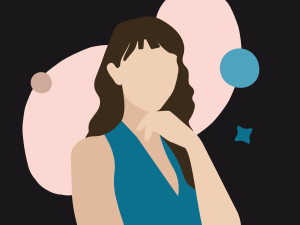
April 30, 2024
Author Ellyce Fulmore struggled with impulsive spending and doing “basic” daily tasks during the pandemic. The pain of coping with that led to her ADHD diagnosis.
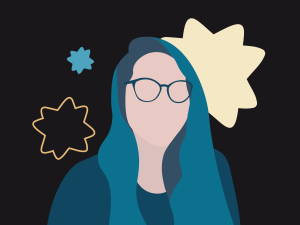
April 16, 2024
ADHD coach Jaye Lin was a gifted kid with undiagnosed ADHD. Now, she’s building communities and helping others cope with ADHD burnout.
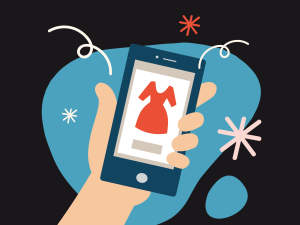
April 2, 2024
Writer Paulette Perhach had money coming in but struggled to keep it in her bank account. An ADHD diagnosis brought her struggles into perspective.
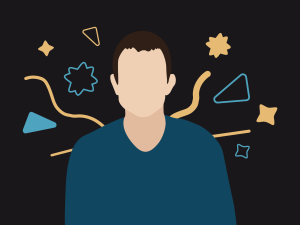
March 19, 2024
Eye to Eye founder David Flink is fighting the “just try harder” myth surrounding ADHD, dyslexia, and other learning and thinking differences.
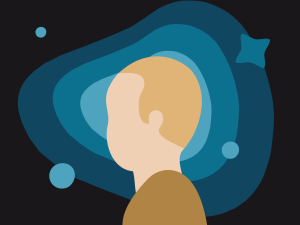
March 5, 2024
Peter Jones used to feel better saying he had a hearing problem rather than considering ADHD. Now, he knows he has ADHD and isn't afraid to say it.
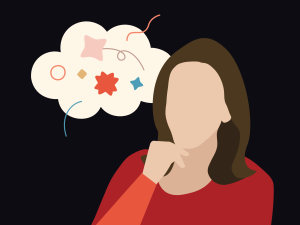
February 20, 2024
Before her ADHD diagnosis, ADHD coach Emily Weinberg thought she was just lazy. But in reality she was stuck in “analysis paralysis.”
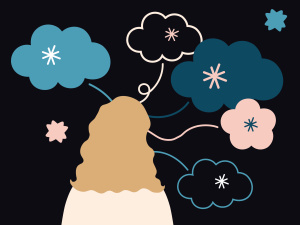
Carol Blumenstein was called an unteachable student. Now, she knows she has ADHD and dyslexia, and supports her five kids who learn differently, too.
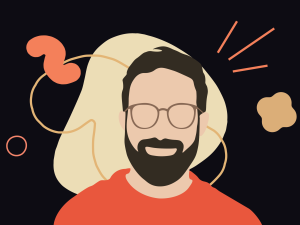
January 23, 2024
Executive coach, actor, and former criminal defense attorney Ernest Anemone shares his ADHD story — and why he questions the term “attention deficit.”
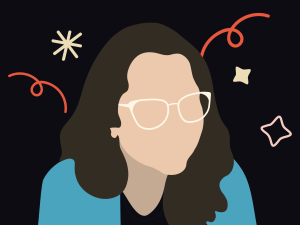
January 9, 2024
ADHD and post-traumatic stress disorder (PTSD) symptoms can look similar. And they can morph into what Hannah calls “a trauma ball of blame.”
